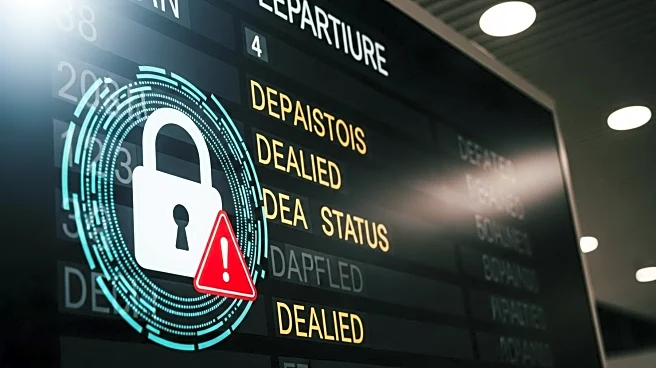What's Happening?
A cyberattack on a service provider for check-in and boarding systems has disrupted operations at several major European airports, including London's Heathrow, Brussels, and Berlin. The attack has rendered automated systems inoperable, necessitating manual check-in and boarding procedures. This disruption has led to flight delays and cancellations, with Brussels Airport reporting a significant impact on its flight schedule. Collins Aerospace, the affected service provider, is actively working to resolve the issue. Delta Air Lines has implemented a workaround to minimize disruption, while other airports like Frankfurt and Zurich have not been affected.
Why It's Important?
The cyberattack highlights vulnerabilities in the aviation industry's reliance on automated systems for passenger processing. Such disruptions can have significant economic impacts, affecting airlines' operational efficiency and passenger satisfaction. The incident underscores the need for robust cybersecurity measures in critical infrastructure sectors. Airlines and airports may face financial losses due to delays and cancellations, and passengers could experience inconvenience and additional costs. The event also raises concerns about the potential for future cyber threats targeting essential services.
What's Next?
Airports and airlines are likely to review and strengthen their cybersecurity protocols to prevent similar incidents. The affected service provider, Collins Aerospace, will need to address the vulnerabilities in its systems and restore full functionality. Regulatory bodies may also push for stricter cybersecurity standards in the aviation industry. Passengers are advised to check their flight status and prepare for potential delays as the situation is resolved.









